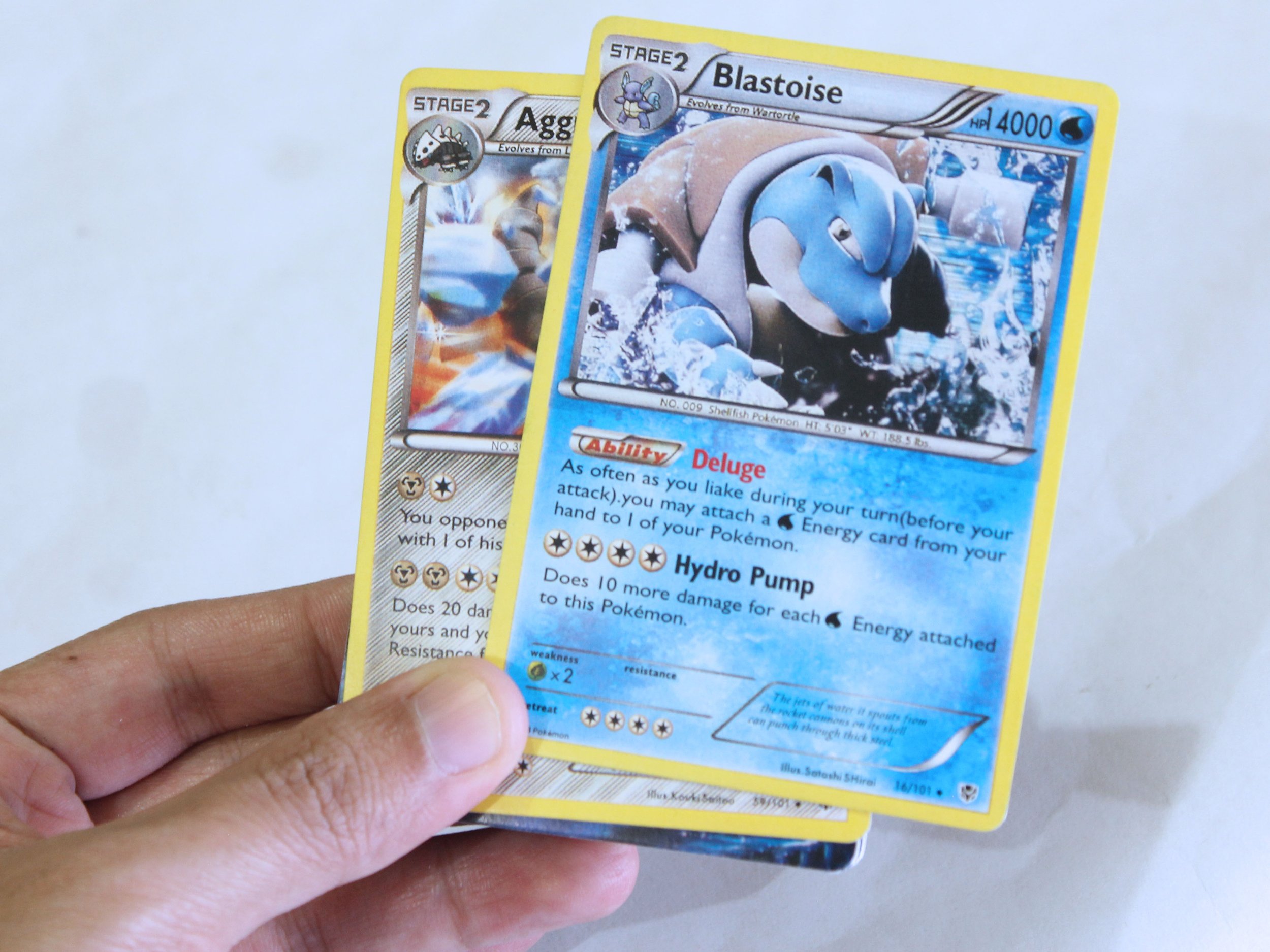At present in Adventure Playground, I work Pokémon is in a popular cycle. Pokémon, like any trading or gaming mechanism comes with its fair share of trials and tribulations and the question does on occasion get raised, "should it be banned"? From a Playwork perspective we do not have the luxury of being subjective about these sorts of things and we need to think about the bigger picture. In the case of cards and trading, the cyclical nature of this play alone (the fact that it comes and goes and is evident in all play settings) tells us two things:
1: There is most likely an evolutionary and developmental function to this play.
2: Banning it only ensures the rapid coming about of the "next thing" to cause these issues groundhog day style with no lessons learnt.
So, what could be the function of this sort of play?
First of all, in addition to the occasional issues that arise, I observe frequently: communication; negotiation; compromise; attribution of value; friendships and social interactions arising well outside of regular peer groups; patience; the development of resilience and maybe slightly more controversial, occurrences of manageable conflict. Conflict gets a bad wrap in the "care" industry and of course, there are many types of conflict we mitigate and/or seek to avoid altogether. However, some conflict, in a play context, is absolutely critical to laying the foundations for conflict management with real, harder hitting issues that will arise when the children are older.
Thus, despite the many obvious, and more easily managed functions of this play, it is possible that these debatable and negotiated disputes are one of the most important functions to set the children up for success in the future. The small catch that can make these things hard to watch and manage from the outside is that it cannot feel fake or tokenistic to the children. They need to "care" enough to have genuine emotional connection to the play, without that emotional connection being strong enough that they are moping over the card they lost at the age of 8 when they are 16. This is the value of trinkets, collectables and trends that children are drawn to and collect like bower birds but come and go in phases.
Another trend is that of cooling off periods for trades. This in my personal experience has no positive outcomes for the play and actually some significant negative ones. For example, children are free to be flippant with their trades knowing they can always change their mind which in reality causes more conflict between traders. The advice here would be to instill the idea in the children to be very mindful of the trades they make as they will stick. This, I am sure as adults you can appreciate, is a lesson better learnt over a trading card or similar rather than many scenarios when the option to "take back" a decision is not available later in the children's formative years,
In short, we can ban Pokémon cards (or the trend of the time) or take a more punitive approach to policing them. However, this will neither solve the play drive to engage, nor impart the very real and functional skills to the children this play drive was meant to do. We can however take a responsible approach to facilitate these play opportunities, give the time and space for them to play out, and be engaged and present if additional support is required.
Angus Gorrie



